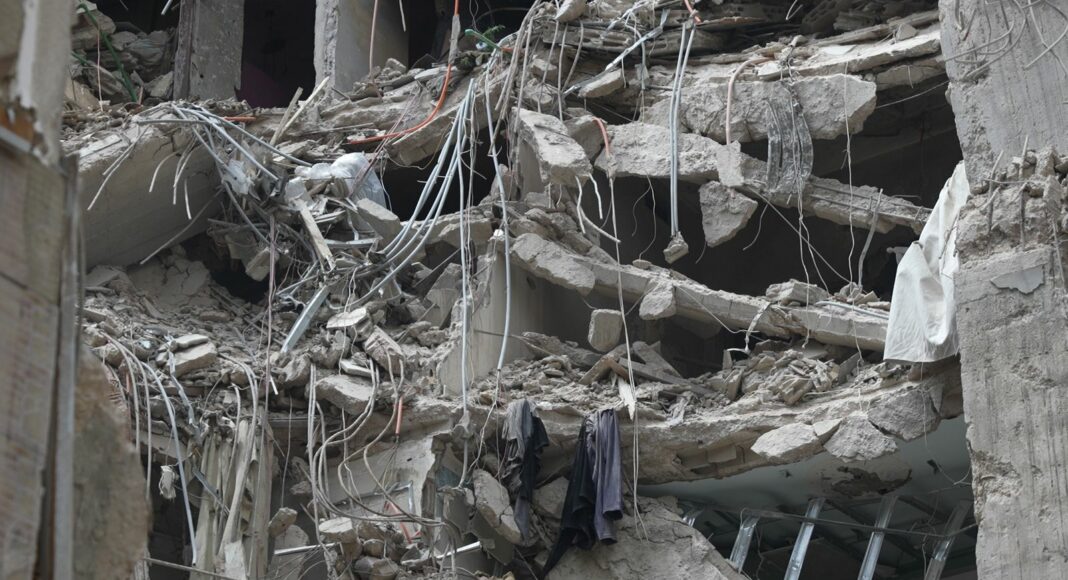The rubble is still being cleared in Lebanon’s capital Beirut where last week Israel assassinated Hezbollah’s top military commander, Fuad Shukr, in an airstrike.
It was an audacious move in the city’s southern suburb of Dahieh that left Hezbollah looking exposed. It also has the potential to reshape the Middle East. The group has vowed to retaliate against Israel.
Next to the building where Shukr was killed, I meet 65-year-old Noura Beddran. She’s animated and incensed. She tells me she was in the lift when the explosion happened.
Image:
Noura Beddran
The blast ripped through her apartment. She shows me the damage – there is debris everywhere – windows blown out, bricks on the beds, everything covered in dust.
“My daughter was sleeping here when the explosion happened, but at that very moment she’d gone to the other room. When it hit, she couldn’t see a thing,” she tells me.
I ask her if she fears Israel might strike her area again – it’s a Hezbollah stronghold.
“We never know when they will strike, for so long they would attack us day and night, they don’t have any limits,” she says.
“Whenever they want, they will hit us. But God will take revenge on Israel, the United States and Britain.”
A few floors down, I meet 40-year-old Sabah Suleiman. She’s sitting in a shell of a room – looking forlornly into the abyss.
Image:
Sabah Suleiman
“It’s unbearable,” she says. “You’re sitting doing nothing and suddenly everything collapses on you.”
She says she’s not scared of death, but the anxiety of wondering when the next attack might be is crippling.
“When you live through times like these, you die a hundred times every day,” she says.
Read more:What is Hezbollah?’Will will win this war’: Inside Hezbollah rally
Western states have designated Hezbollah a terrorist organisation, but its influence and firepower have grown hugely in recent years.
Israel’s strike on one of its top leaders was a major blow for the group – stripping them of a man who’d helped take them from a shadowy civil war militia group to a major player in the region.
Lebanon has its own unique dysfunction to wrestle with.
The government is in power, but it’s not in control. It has no president and the economy is crippled. They, too, are trying to second guess what move Hezbollah will make. And they are struggling to prepare for what might come.
Nasser Yassin, the environment minister overseeing contingency planning for a wider conflict, says Lebanon would need $100m (£79m) a month for food, shelter, healthcare and other needs in a worst-case scenario.
Image:
Nasser Yassin
It is an almost impossible situation. He also has little faith in Benjamin Netanyahu committing to a ceasefire.
“I think Netanyahu is only concerned about waging this regional war to save his neck,” he tells me.
But the Israeli prime minister has said he’ll go back to the negotiating table – after America, Qatar and Egypt called on him to meet next week to discuss a ceasefire.
There is a lot that could happen in the meantime to derail those efforts, but diplomacy continues across the region and the wider world.
Recent reports suggest Hezbollah could now strike out alone, with Iran delaying its response until after possible Gaza ceasefire negotiations next week.
The reality is Hezbollah is a wild card few feel confident about. They like every other player say they want to avoid a wider war. But they remain committed to taking action against Israel and they will likely want to deliver a bigger warning shot than anything that has come before.




